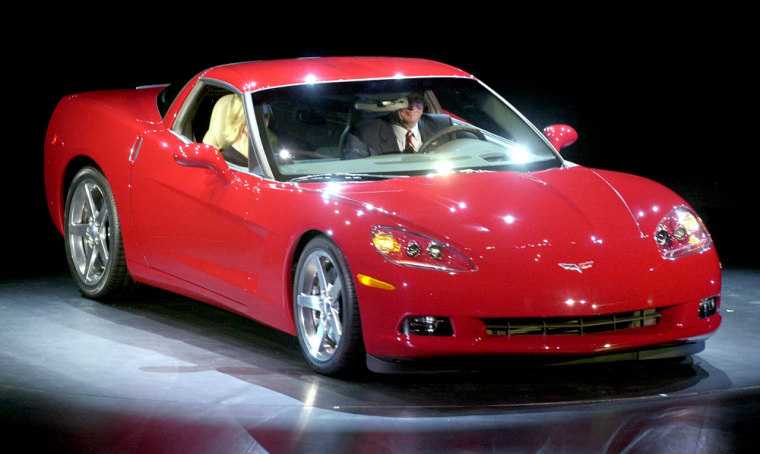"Ten-tenths" is the phrase with which professional vehicle testers describe the limits they are seeking. To find out how a car performs at "ten-tenths" of its capabilities, an automaker, testing company or car magazine will employ hardcore methods — and hardcore drivers.
In the slide show, you can read about which car in each price category has the fastest zero-to-60 mph acceleration time — one of most important measurements of a car's performance. Several of the models on the list are new — including General Motors' overhauled Chevrolet Corvette, Porsche's new 911 and DaimlerChrysler's new Mercedes-Benz SLK55 AMG convertible — and as such owe their distinguished performance records both to the capabilities of the cars themselves (horsepower and aerodynamics are among the most important factors) and the drivers who achieved the results.
We judge by price because otherwise the list would be dominated with the usual hyper-expensive supercars.
The best professional test drivers often have backgrounds in competition such as drag racing, road racing and autocross. To blast a car from zero to 60 mph at optimum speed, they will employ methods like flooring the brake, then flooring the gas to build up engine speed (in rear-drive cars with big engines such as V-8s this often produces a delightful smoke cloud from the rear wheels known as a "burnout"), then releasing the brake to launch the car while the tires screech and leave tracks (be sure to turn the traction control off before you do this; in fact, you really shouldn't do it at all).
Acceleration results can vary
The human element in zero-to-60 testing adds drama to the proceedings, and makes for more interesting comparisons than those that concern cars' top speeds, which are usually electronically limited by the automakers (many premium and exotic sports cars top out around the 200 mph mark). It also makes for inexact science, in which different places report different zero-to-60 results.
On lists of specifications for its vehicles, BMW adds this disclaimer next to zero-to-60 times: "Actual acceleration results may vary depending on specification of vehicle, road and environmental conditions, testing procedures and driving style." Some places adjust zero-to-60 times for track conditions; some do not.
Keeping a level playing field when comparing zero-to-60 times therefore becomes tricky, if not impossible. Some manufactures we consulted for this piece, including Nissan Motor and Honda Motor, said that they are no longer providing zero-to-60 times to the media, and directed us to the sources from which they themselves get their zero-to-60 times: automotive "buff books," i.e. magazines such as Car and Driver and Motor Trend, which have their own testing equipment and cater to readers who are car enthusiasts.
A vehicle line — for example, the Porsche 911 — can have several different zero-to-60 times based on its combination of engines, transmissions, body styles and other factors. We looked at cars' varying acceleration results with such different combinations, but we also had to navigate the reporting of different zero-to-60 times from different places. We went with results from the manufacturers where possible, but when forced to choose between results as reported by the buff books, we went with the best zero-to-60 times we could find.
We also considered only the performance of new car lines. For example, we did not consider Fiat's Ferrari 360 Modena line for the list, because it is being discontinued to make room for the new Ferrari F430 coupe. Ferrari dealers manage their own waiting lists (which exist for every Ferrari model), but if you were on a 360 Modena waiting list, chances are you have been or will be switched to one for the F430, which will not be in the showrooms until late February or early March 2005.
We also evaluated only vehicles made by original equipment manufactures, and not special treatments of other brands' cars, such as the versions of Ford Motor's Mustangs that are customized by Saleen, an automaker based in California.
